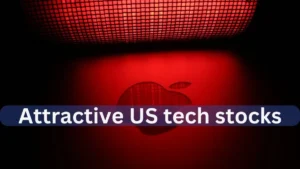Tesla stock awarded investors with a phenomenal return following the Corona pandemic. The stock price of Tesla increased by over $400 per share in less than two years. It was a meteoric recovery of over 15 times from the epidemic low.
However, during the past year, Elon Musk’s Tesla has only brought investors pain. The Twitter uproar, the conflict in Russia and Ukraine, and the global financial crisis spurred on by soaring inflation all contributed to a dramatic drop in the stock price.
EV maker Tesla as a company
In China, the US, and other nations, Tesla, Inc. designs, develops, manufactures, rents, and distributes energy generation and storage systems. The automotive and energy generation and storage segments make up the company. In addition to selling electric automobiles, the automotive section also sells automotive regulatory credits. It offers sedans and sport utility vehicles through direct and used car sales, a network of Tesla Superchargers, in-app upgrades, and services for purchase financing and leasing.
According to July data from Morgan Stanley, the company has 60.9% of the BEV market in the United States under its control. Tesla’s revenue climbed by 71% from $31.53 billion in FY2020 to $53.82 billion in FY2021. December 2021 through January 2021: due to an increase in vehicle deliveries, a rise in the average selling price (ASP), and growth in other parts of the business, Tesla announced total revenue of $16.9 billion for Q2 FY2022, up 42% year over year, along with electric cars. Tesla also creates endlessly scalable clean energy generation and storage solutions. Tesla’s customers were able to prevent the emission of 8.4 million metric tons of CO2 into the atmosphere because of the global network of its cars, energy storage, and solar panels.
Tesla as a constituent of Nasdaq-100
The Nasdaq-100 (NDX) is a capitalization-weighted modified index that contains data on the major non-financial companies listed on the Nasdaq Stock Exchange. It was founded in 1985 with the intention of attracting more investors. The Nasdaq-100 offers a terrific combination of innovation, rapid development, diversity, global appeal, and liquidity, making it a great addition to any investor’s core portfolio.
Tesla is one of the top five companies in the Nasdaq-100 index. If we look at the stock’s performance over the past year, it has been one of the Nasdaq 100’s worst underperformers.

Tesla stock one-year performance
Tesla (NASDAQ: TSLA): The price of Tesla shares substantially dropped from their one-year high of $402.67 to $177.12. This means the share price of Tesla has halved its price. The Nasdaq-100 also experienced a drop from its one-year high of about 40%. Tesla, on the other hand, had a 56% decline from its November peak.
Tesla has only been declining since the highs, making lower highs and lower lows in tandem with the market. $250 served as critical support for this stock on the downside. It attempted to reverse for several months while taking support frequently in that area. However, rallies frequently fade away around $315.
Due to the Russia-Ukraine war and the sharp rise in inflation, there was considerable turmoil in the global financial markets during the whole year. Due to strong inflation rates and Fed rate rises beginning in March 2022, investors will have to take money off the table. Across Europe and the US, we observed a situation resembling a recession. As a result, there was significant selling pressure on equities all across the world.
The main US indices, the Dow Jones, S&P 500, and Nasdaq, reached a 52-week low. Stronger equities like Tesla also hit a 52-week low as a result of record highs in the 10-year bond yield and the U.S. dollar index. Finally, Tesla failed to maintain its crucial support level in October of this year and sharply declined below $250.
Tesla’s share price plunged sharply, dropping 56% from its 52-week high of $402.67 to a 52-week low of $177.12 in November 2022. Investors should now wait for a significant uptick in the U.S. market benchmark indices before expecting Tesla to perform wonderfully. Otherwise, the stock may further decline below the 52-week low, also due to extreme market volatility.
Top reasons for the share price of Tesla’s decline
- Corona lockdown in China.
- Russia-Ukraine war.
- Twitter acquisition by Tesla.
- The concern of advertisements on Twitter by companies.
- Total selling of Tesla shares worth around $19 billion by Elon Musk to acquire Twitter.
- The US registered record inflation numbers in 2022, which was a 41-year high.
- The US dollar index recently reached a 20-year high. The U.S. dollar index reached a high of 114.745 in September 2022.
- U.S. 10-year Treasury yield hit 4.2% for the first time since 2008
- 6 consecutive rate increases by the Fed in 2022.
- Tesla’s auto sales have grown slowly in all of its major markets.
What did analysts at Morgan Stanley warn regarding Tesla?
Morgan Stanley analysts noted that “some consumers’ opinion” toward the maker of electric vehicles (EVs) has been affected by Elon Musk’s recent agreement to take Twitter private.
Investor worries “about the possibility of consequences on consumer mood that could harm Tesla’s company in the near term” are clearly reflected in Tesla’s stock momentum, which is obviously bearish. Analysts have recently spoken with Tesla investors. Some investors have indicated that they do not want to be involved with the ruckus around Musk and Twitter.
Although Tesla now has a significant amount of self-funding. They added in a client note, “To reach the growth anticipated in its present $600 billion market capitalization would require a maintained strong relationship with the investor community.”
Additionally, the recent price drops for EVs in China indicate that demand may be decelerating. As per analysts, Tesla may follow up and introduce price cuts in Europe.
As a result, the analysts predict that the stock price could achieve Morgan Stanley’s bear case price target of $150 per share by year’s end. This would indicate a decline of more than 20% in the price of Tesla equity shares from Monday’s closing price of $190.95, offering a “golden opportunity for aspiring Tesla investors.”
The analysts wrote, “At our $150 bear case price, Tesla shares would trade at approximately 12.5 times EV/EBITDA and 23 times PE on our FY25 forecast (SBC burdened), which we see as an absolute bargain for a self-funded, 20 to 30% top-line grower in top position to benefit from re-architecting the US on-shore/near-shore/friend shore renewable supply network at scale.”




